Candy, (Candace) Lightner
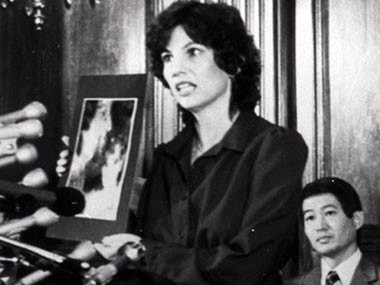 Candace Lightner (born Candace Doddridge on May 30, 1946) is a groundbreaking American traffic safety activist, author and spokesperson, widely recognized as one of the most influential American citizens of the twentieth century. She founded Mothers Against Drunk Driving, the first national anti-drunk driving movement in the United States, in May 1980 after her 13-year-old daughter was killed by a multiple repeat offender drunk driver.
Candace Lightner (born Candace Doddridge on May 30, 1946) is a groundbreaking American traffic safety activist, author and spokesperson, widely recognized as one of the most influential American citizens of the twentieth century. She founded Mothers Against Drunk Driving, the first national anti-drunk driving movement in the United States, in May 1980 after her 13-year-old daughter was killed by a multiple repeat offender drunk driver.
Lightner is a recipient of the President’s Volunteer Action Award and the Jefferson Award for Public Service, considered a “Nobel Prize for public and community service.” You already linked once so you don’t need to do it again. She was selected as one of Esquire Magazine’s New Leadership Class and Time Magazine’s Seven Who Succeeded.
Between 1980 and 1985, Lightner led Mothers Against Drunk Driving (MADD) from a small, grassroots organization into an international organization with more than 400 chapters worldwide, over two million members, and an annual budget of over 12 million dollars.
She is notable for lobbying Governor Jerry Brown to establish a state commission on drunk driving which would set a national precedent, and for initiating and serving on President Ronald Reagan’s National Commission on Drunk Driving. As a member of both efforts, Lightner has testified before Congress, Statehouses and committee hearings and spurred the passage of hundreds of laws pertaining to drunk driving. She was a key figure in passing the Minimum Drinking Age Act.
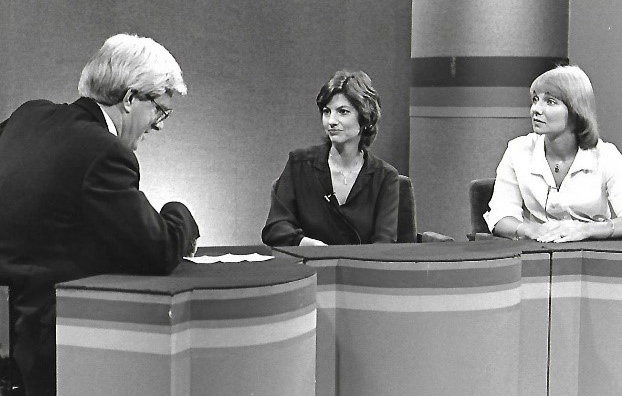 She has contributed expert commentary to a wide variety of national media. and was featured in the documentary films,On Smoking, Drinking and Drugging in the 20th Century: In Pursuit of Happiness (also known as The Twentieth Century Project) directed by Bob Zemeckis (1999), and Seeds of Resiliency, directed by Susan Polis Schutz (2015). She was the subject of the two-time Emmy nominated film, Mothers Against Drunk Drivers: The Candy Lightner Story (1983).
She has contributed expert commentary to a wide variety of national media. and was featured in the documentary films,On Smoking, Drinking and Drugging in the 20th Century: In Pursuit of Happiness (also known as The Twentieth Century Project) directed by Bob Zemeckis (1999), and Seeds of Resiliency, directed by Susan Polis Schutz (2015). She was the subject of the two-time Emmy nominated film, Mothers Against Drunk Drivers: The Candy Lightner Story (1983).
Lightner founded We Save Lives, in 2014, an Arlington, Virginia-based highway safety non-profit organization focusing on Drunk, Drugged and Distracted Driving. She continues her work as an advocate, media spokesperson, organizer and lecturer, addressing impaired driving, gun violence, victim’s rights, social change and movement building.
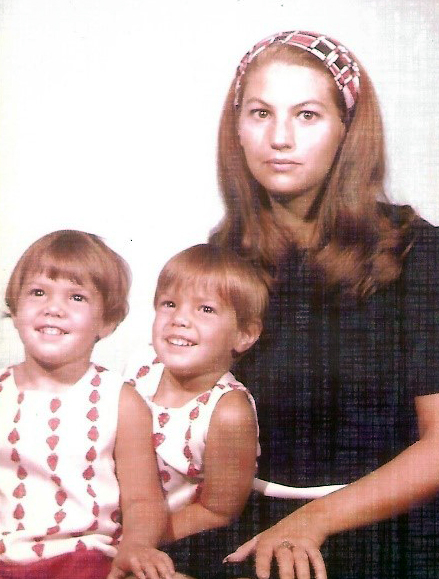 Candace Lightner was born on May 30, 1946 in Pasadena California, the daughter of Dykes Charles Doddridge and Katherine Karrib Doddridge. Her mother was born to Syrian immigrants in LaCrosse, Wisconsin, and in 1944, Katherine joined the Women’s Army Auxiliary Corps as a Private First Class. She met and married Army Air Corps Master Sergeant Dykes Doddridge in 1945.
Candace Lightner was born on May 30, 1946 in Pasadena California, the daughter of Dykes Charles Doddridge and Katherine Karrib Doddridge. Her mother was born to Syrian immigrants in LaCrosse, Wisconsin, and in 1944, Katherine joined the Women’s Army Auxiliary Corps as a Private First Class. She met and married Army Air Corps Master Sergeant Dykes Doddridge in 1945.
As a military family, the Doddridges raised Candace and her sister Kathy all over the world, traveling to numerous countries and living in Guam, France, and Germany. Candace spent a year at boarding school in Verdun France, and graduated from Armijo High School in Fairfield California in 1964.
Following her years at American River College in Sacramento, Lightner worked as a dental assistant, and later married Air Force Officer Steve Lightner. In 1970, the Lightners moved to Kadena Air Force Base in Okinawa, Japan where Steve was stationed. There, Candace helped to establish a drug program for heroin-addicted military personnel, a suicide hotline, and a center for troubled teens. [cite: Marquis] In 1971 Lightner worked with the American Red Cross, counseling military families who were experiencing personal and financial hardships. [Marquis] Daily Republic.
Lightner had identical twins Carime (Cari) and Serena prior to her marriage to Steve Lightner. The couple had a son, Travis. Lightner settled with her children in Fair Oaks, California, and worked as a real estate agent there. Biography, Soul Models. The couple later divorced and Candace continued to live in Fair Oaks with her three children.
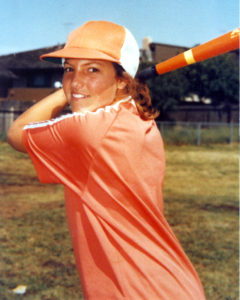 On May 3, 1980, Lightner’s 13-year-old daughter, Cari was struck by a drunk driver while walking to a church carnival with a friend near the family’s suburban Sacramento home. The car, which never stopped, swerved into the bike lane where Cari was walking and hit her with such force that she was thrown 125 feet. The driver blacked out behind the wheel briefly before continuing home. Cari Lightner died within the hour. http://www.chicagotribune.com/news/ct-xpm-1985-06-30-8502120240-story.html
On May 3, 1980, Lightner’s 13-year-old daughter, Cari was struck by a drunk driver while walking to a church carnival with a friend near the family’s suburban Sacramento home. The car, which never stopped, swerved into the bike lane where Cari was walking and hit her with such force that she was thrown 125 feet. The driver blacked out behind the wheel briefly before continuing home. Cari Lightner died within the hour. http://www.chicagotribune.com/news/ct-xpm-1985-06-30-8502120240-story.html
Four days after Cari was killed, the California Highway Patrol arrested 47-year-old Clarence William Busch, determining that he had been drunk at the time of the crash. Lightner learned that Busch had been arrested for another drunk driving crash the night before he killed Cari. He was released on bail in the morning and stopped at a neighborhood bar. On his way home, he hit and killed Cari. Lightner learned that the crash that killed her daughter was Busch’s fifth drunk driving offense in four years, and that he was driving with a valid California driver’s license when he killed her daughter.
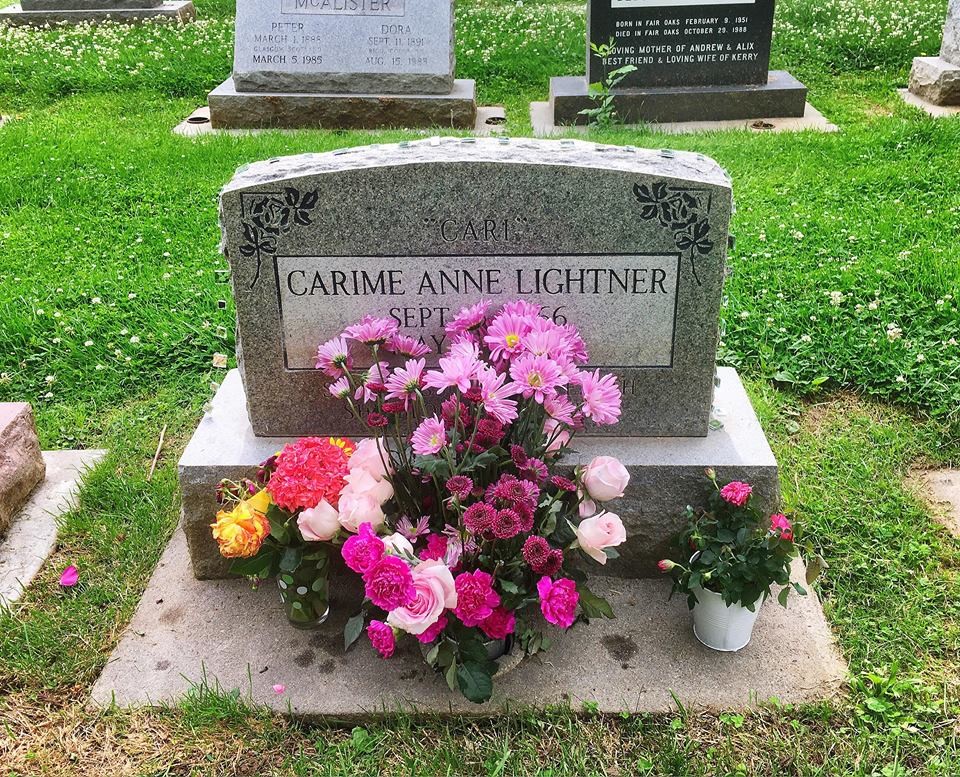 In November, 1980, Busch pleaded no contest to vehicular manslaughter in a plea bargain arrangement and he was sentenced to two years of incarceration, serving 16 months in jail, labor camps and halfway houses. He still had a valid California driver’s license and was allowed to drive to and from work and to and from home on the weekends. He was paroled in September, 1981. Statesman Journal, Sept. 9, 1980, LA Times
In November, 1980, Busch pleaded no contest to vehicular manslaughter in a plea bargain arrangement and he was sentenced to two years of incarceration, serving 16 months in jail, labor camps and halfway houses. He still had a valid California driver’s license and was allowed to drive to and from work and to and from home on the weekends. He was paroled in September, 1981. Statesman Journal, Sept. 9, 1980, LA Times
The crime that took her daughter’s life was not Lightner’s first experience with impaired drivers. Years earlier, Lightner’s mother and daughter Serena had been injured in a crash caused by a drunk driver; and shortly after this incident, an unlicensed driver impaired by tranquilizers hit Lightner’s then four-year-old son Travis, leaving him with numerous critical injuries including a collapsed lung, broken ribs and a fractured skull, which caused permanent brain damage. He was in a coma for 4 days. https://wesavelives.org/living-with-a-brain-injured-child/
In the days following Cari’s death, Lightner learned that over the past decade, 250,000 people had been killed in alcohol related crashes and another 660,000 injured.
Four days after Cari’s funeral, on May 7, 1980, Lightner founded Mothers Against Drunk Drivers, later renamed Mothers Against Drunk Driving (MADD). and began running the organization out of her Fair Oaks home. She quit her real estate job and used savings to establish the organization. As she expressed in a 1981 interview for People magazine:
This was not an ‘unfortunate accident,’ … Cari was the victim of a violent crime. If my daughter had been raped or murdered, no one would say of the killer, ‘There but for the grace of God go I.’ Death caused by drunk drivers is the only socially acceptable form of homicide. Statesman Journal, Sept. 9, 1980, Biography
On August 17 1980, Lightner officially launched MADD at a Sacramento Press conference. Accompanied by representatives from the California Attorney General’s office, the principal of her daughter’s school and her daughter, Serena, Lightner announced a state-wide petition drive, and called on Governor Jerry Brown to establish a commission to “solve - not study” the issue of drunk driving. In the Fall of 1980, Brown gave Lightner her Statewide Task Force and she was a member. Within two years nearly every state followed suit.
Lightner devoted herself to researching the science and laws surrounding drunk driving. At the time, completely uninvolved in politics or social reform and not even registered to vote, Lightner learned on her feet, meeting with lobbyists, California Highway Patrol representatives and Assembly members, attending courtroom hearings and studying the California vehicle code from cover to cover.
In Local Heroes, The Rebirth of Heroism in America, Lightner told author Bill Berkowitz that she never saw herself as a victim but someone who wanted to address a problem: “I never attempted to go public with my pain. What I attempted to do was to go public with the facts, and talk about the solution.” Local Heroes
In October 1980, Lightner held a press conference on Capitol Hill, accompanied by Mike Barnes (D.- Md.), Robert Matsui (D.-Ca.), Claiborne Pell (D.- Ri.), and Cindy Lamb, a Baltimore woman whose infant daughter was a quadriplegic after being hit by a repeat drunk driver earlier that year. She called on the president of the United States to form a commission to solve the impaired driving problem. President Reagan agreed and appointed Lightner a member. https://www.reaganlibrary.gov/research/speeches/80582c
“I am not against drinking,” Lightner told the Statesman Journal in Sept. 1980, “I am for responsible drinking. We don’t let people walk around with a loaded gun in our neighborhood. But we let them drive when they drink.” Statesman Journal
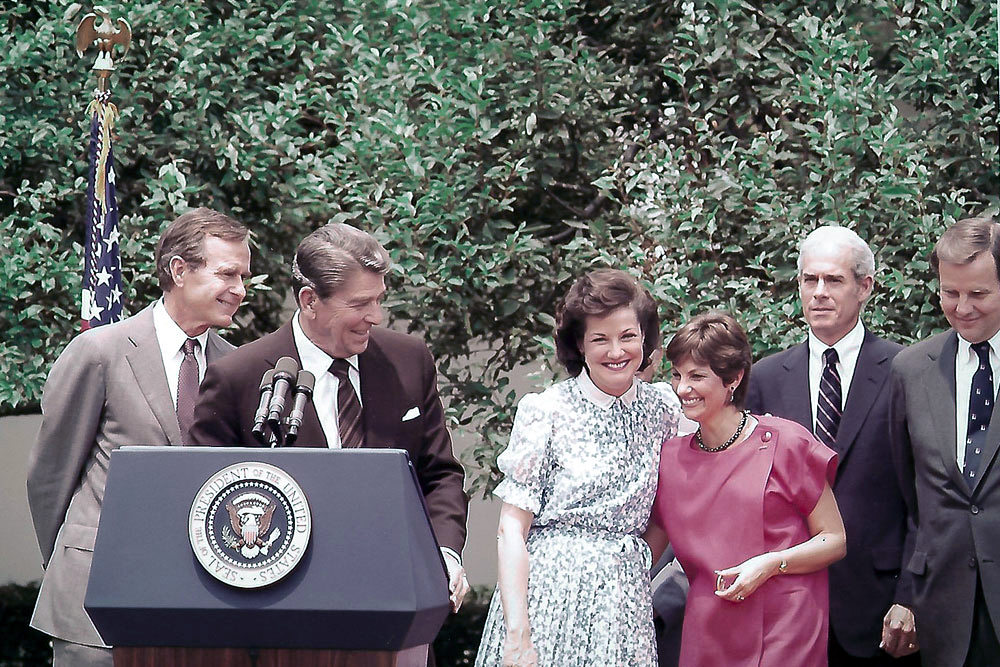 Lightner’s ability to think strategically and appeal to legislators across the aisle supported the passage of over 729 state laws and numerous federal laws between 1981 and 1986.
Lightner’s ability to think strategically and appeal to legislators across the aisle supported the passage of over 729 state laws and numerous federal laws between 1981 and 1986.
CNN, Healdsburg Tribune, This Day in History
A package of bills signed by Governor Brown, considered the toughest in the country, changed the legal definition of drunk driving, and took into account offenders’ previous convictions, imposing minimum fines for drunk drivers, and a six-month license suspension and mandatory imprisonment of up to four years for repeat offenders.
Lightner worked vigorously to raise the national minimum legal drinking age to 21, launching a campaign to expose the dangers of ‘Blood Borders’ in which young people crossed state lines to legally buy alcohol, and demanding that states be held accountable for drunk driving fatalities. She was successful and the bill passed and was signed by the late President Reagan. She continues to advocate for anti-drunk, drugged and distracted driving legislation as president of We Save Lives.
Lightner believed the impaired driving problem was a local, state and national problem. Her strategy was to deal with the problem on all 3 levels. She organized schools, community groups, and affected families into powerful national organizations, and built alliances with government organizations, legislators and industry groups. She has been recognized as a “pragmatic activist,” willing to work with unlikely allies and listen to competing perspectives in order to meet a larger goal. Washington Post.
Lightner generated continual interest from the media and did this more effectively than any citizen activist had done before, a strategy credited by the Harvard School of Public Health for significantly reducing motor vehicle deaths and death rates between 1980-1983. She re-framed the impaired driving narrative, portraying reckless driving as the shameful product of a culture devoid of personal responsibility. She shared her story and those of countless others, shedding light on victims who could be anyone’s child, spouse or parent, and humanizing an issue that had previously been framed in faceless statistics.
She is credited with prompting a sharp rise in the number of feature stories about drunk driving, stimulating public discussion and legitimizing the issue in the public eye.
https://www.cnn.com/2012/12/24/opinion/lightner-madd-effect/index.html,
https://ssir.org/articles/entry/developing_media_messages_that_save_lives
https://www.nytimes.com/1996/12/15/weekinreview/a-fading-drumbeat-against-drunken-driving.html
"When the press began to lose interest, we visited their offices, reciting statistics, telling the victim's side of the story, including what we considered appalling conduct in our courtrooms … People began to listen, and the courts and legislatures began to respond."
In 1985, after being removed from her board during contract negotiations, Lightner remained as President and spokesperson. However, when the board asked her to renew her contract and remain as President, she refused. She felt that she had accomplished more than she set out to do, and cited the need to move on with the rest of her life, sharing in a news interview: “I did not want Clarence William Busch to make me a perpetual victim,” https://www.dailyrepublic.com/all-dr-news/solano-news/local-features/local-lifestyle-columns/candace-lightner-founder-of-madd-armijo-grad/ She was also concerned the organization was turning away from activism, becoming just another bureaucracy and would soon lose its grass roots momentum. It is her belief that is what has happened considering the dramatic rise in alcohol related crashes.
She remained a consultant with MADD for several years, and as President of CL and Associates continued to assist organizations with legislative strategy, consensus-building, grass roots advocacy and fundraising.
She used the transition as an opportunity to co-write Giving Sorrow Words: How to Cope with Grief and Get on with Your Life. The book guided readers through the grief process and shared extensive testimonials and strategies for coping with loss. It had a strong following and was praised as a comforting, insightful and constructive resource.
"I am most proud that other people saw in my work a reason to do something similar that changes a culture, changes laws and saves lives." Daily Republic
She also worked with the Department of Energy ( DOE), and launched an innovative curriculum, The Energy Smart Real Estate Specialists’ designation, (ESRES) that inspired and motivated real estate agents from across the country to incorporate energy efficiency into their practice. ESRES was taught in more than ten states.
Addressing a new kind of madness on the roads
In 2014, Lightner founded We Save Lives, an international, non-profit coalition addressing “The Three D’s” – drunk, drugged and distracted driving through legislative advocacy, media campaigns, consumer education and coalition building. The organization has supported the passage of anti-distracted driving bills in several states and is the only national advocacy organization to initiate anti-drugged driving legislation.
Lightner is executive producer of several videos including the award-winning online video, Reflections from Inside. https://wesavelives.org/reflections-from-inside/ The film, which has been viewed over more than 400 million times worldwide, features inmate Kris Caudilla, reflecting on the night he drove drunk and took the life of police officer and father of four, James Anderson Jr. It is thought to be the first time a convicted felon has filmed a PSA about the consequences of drinking and driving.
She is an, ongoing guest lecturer at the Institute for Personal Leadership at the Columbia Business School, and continues to speak to numerous organizations including Harvard University’s Advanced Leadership Initiative, Stanford University and the Heritage Foundation.
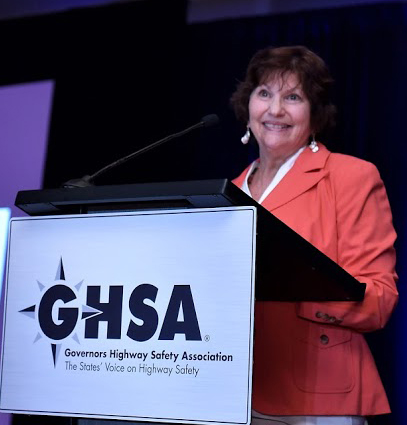 1982, Jaycees’ Five Outstanding Californians, and first woman to be honored
1982, Jaycees’ Five Outstanding Californians, and first woman to be honored
1983, Presidential Volunteer Action award
1983, Jefferson Award, American Institute for Public Service
1984, St. Francis College, Pennsylvania, Honorary Doctorate
1984, Epilepsy Foundation Award
1985, Time Magazine, One of Seven Who Succeeded
1985 Esquire Magazine, Register of America's New Leadership Class
1985, World Almanac and Book of Facts, "America's 25 Most Influential Women in 1985"
1986, Good Housekeeping Most Admired Women's poll
1986 YWCA, Women of the Year
1986 America’s Most Influential People World Almanac and Book of Facts, ranked in the top 25
1987, World Congress of Victimology, Distinguished Leadership award
1988, Women’s International Center Living Legacy award
1988, Association Childhood International, Friends of the Children Award
1990, Life Magazine Listed as One of the Original Thinkers of the Eighties
1999, Recipient, National Parent’s Day Award
Women's International Center, Patricia Neal Courage Award
Film Advisory Board Award for Excellence
Women’s Center Annual Leadership Award
Testimonial Award from Civitan International
The Woman of the Year award from the Mortar Board Society
The first recipient of Commonwealth Award for Public Service from the University of Delaware,
The Black and Blue Award from the Thomas Jefferson University Hospital Emergency Medicine Society
The Human Dignity award from the Kessler Institute for Rehabilitation
The Woman of Distinction award from the Third National Congress College Women Student Leaders
The Entrepreneurial Woman Award from the Woman Business Owners of New York
The Freedom Foundation’s Individual Achievement award
The Human Concern award for the Outstanding Contribution to the Protection of Life or Property from the Western Insurance Information Services
She was voted by the press as of “America’s 25 Most Influential Women in America”
The Frank Carrington Champion of Civil Justice Award
Ms. Lightner also has received Honorary Doctorates from Kutztown University, Marymount University and Saint Francis College.
2019 Governors Highway Safety Association (GHSA) the James J. Howard Highway Safety Trailblazer Award
2023 L.A. Style Magazine Award
Candace has inspired and motivated millions of people around the world
Enroll America: Getting America Covered
Physicians for Informed Consent
International Boating and Water Safety Summit
The National Crime Victim Bar Association
IPTM Conference Symposium on Traffic Safety
February, 2018 Heritage Foundation: Drugged Driving, What is the Problem, and What are the Solutions?
American Beverage Institute
Columbia University Personal Leadership Institute (ongoing guest lecturer)
National Center for Victims of Crime
The Americas Regional Meeting of the International Society for the Study of Drug Policy on Cannabis Policy
Smart Approaches to Marijuana (SAM)
International Associations Chief of Police
National Council of State Legislatures
Draeger (Dräger is an international manufacture equipment leader in the fields of medical and safety technology.)
Society of Forensic Toxicologists (SOFT)
Grandparents Against Gun Violence
Arizona Distracted Driving Summit
March, 2009, Harvard University, Advanced Leadership Initiative Think Tank: Filling Leadership Gaps in Health Promotion Prevention and Care
1991, Stanford University Centennial Weekend Celebration Roundtable: Values: How Are They Imparted to the Next Generation
1985, Selected by Johns Hopkins University to participate in Anglo-American Successor Generation program in England
The National Association of Broadcasters
Center for Creative Leadership
The Royal Society for the Prevention of Accidents
The Society of Automotive Engineers
The National Highway Traffic Safety Administration
The American Academy of Judicial Education
Association for the Care of Children’s Health
American Trial Lawyers Association
Fairfax Elementary School and parent Teachers Association
California State University, Chico
International Commission for the Prevention of Alcoholism and Drug Dependency
International Union of Police Associates, AFL/CIO
National Association of Convenience Stores
National Fraternal Congress of America
National Organization of Victim assistance
National Restaurant Association
Pennsylvania Association of Student Councils
Professional Convention Management Association
Senator Campbells Conference on Women
American Dental Auxiliary
The National Society of Fundraising Executives
The National League of Cities
NCR Engineering Systems
Central Intelligence Agency
Kutztown University
Marymount University
St. Francis University
University of Delaware
Central Intelligence Agency CIA
Center for Disease Control (CDC)
National Society of Fundraising Executives